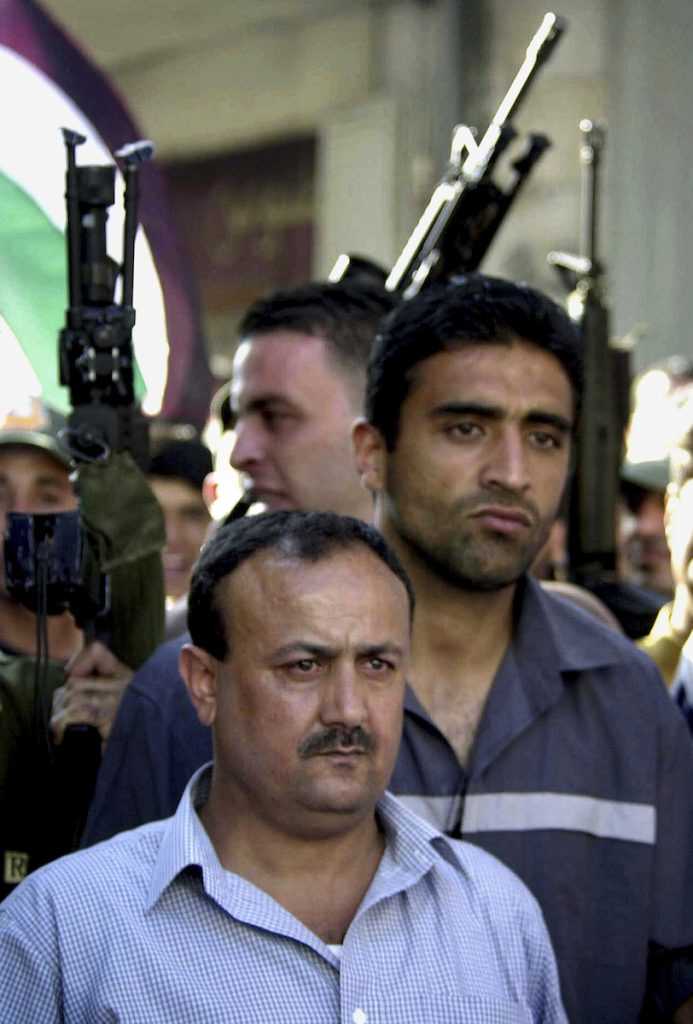JERUSALEM – Israel will not negotiate with hundreds of Palestinian prisoners who launched a hunger strike to press for better conditions, a government minister said Tuesday, adding that the organizer of the protest has been placed in solitary confinement.
If sustained, the strike led by Marwan Barghouti, a Palestinian leader jailed during the second Palestinian uprising, would be the largest in recent years.
It is also gaining traction since Barghouti, who is serving multiple life terms in prison after Israel found him guilty of involvement in the deaths of four Israelis and a Greek monk, is widely expected to run for president once Mahmoud Abbas is out of the picture.
The strike could also heighten Israeli-Palestinian tensions at a time of renewed U.S. attempts to restart stalled peace negotiations. Israeli rule over the West Bank and east Jerusalem, territories captured during the 1967 war and claimed by the Palestinians as part of a future state, reaches the half-century mark in June.
The Palestinian prisoners seek better conditions, including more contact with relatives, and an end to Israel’s practice of detentions without trials.
Israeli officials said some 1,100 prisoners joined the strike on Monday.
Palestinian officials and activists put the number of hunger strikers at 1,300 and 1,500, respectively, saying it is difficult to get updates from inside the prisons.
They said some 6,500 Palestinians are currently in Israeli lockups. Israel calls them security prisoners — held for offenses ranging from stone throwing and membership in outlawed groups to carrying out attacks that killed or wounded Israelis. Several hundred are being detained without charges.
Barghouti, the strike leader, is prominent in the Fatah movement of Western-backed Palestinian President Abbas. Polls suggest that the 58-year-old Barghouti is the most popular choice among Palestinians to succeed the 82-year-old Abbas.

Barghouti, a leader of the 2000 Palestinian uprising, is serving five life terms after being convicted by an Israeli court of directing two shooting attacks and a bombing that killed five people, including three Israelis. Barghouti, who disputed the court’s jurisdiction and didn’t mount a defense, has been in prison since 2002.
In an opinion piece published this week in The New York Times, Barghouti alleged that Palestinian prisoners and detainees in Israel “have suffered from torture, inhumane and degrading treatment, and medical negligence.” He said he organized the hunger strike to fight back, after exhausting all other options.
Prime Minister Benjamin Netanyahu said on Tuesday he had read the Sunday article in the Times that “presents arch-terrorist Marwan Barghouti as a ‘parliamentarian and leader’.”
“The paper recanted after we pointed it out to them,” Netanyahu said, adding that calling Barghouti a political leader was akin to calling Syrian President Bashar Assad a doctor.
Israeli Minister of Public Security Gilad Erdan said he believes the strike is politically motivated and that the prisoners have no legitimate complaints.
“These are terrorists and incarcerated murderers who are getting exactly what the international law requires,” he told Israel’s Army Radio. “My policy is that you can’t negotiate with prisoners such as these… There is no reason to give them additional conditions in addition to what they already receive.”
He said Israel has established field hospitals outside the prisons to respond to any immediate medical needs.
Erdan said Barghouti was transferred to another prison in northern Israel and was placed in solitary confinement.
“It doesn’t have to do with publishing the article [in the New York Times] but rather that he is instigating mutiny and leading the hunger strike and that is a severe violation of the rules of the prison,” he said.
Issa Qarakeh, a Palestinian government official dealing with prisoners, said most of those who joined the hunger strike were Fatah supporters. He said about 170 prisoners from Fatah rivals Hamas and Islamic Jihad also participated.
ARON HELLER










